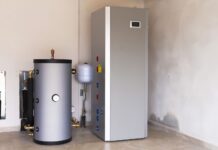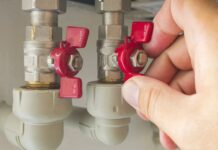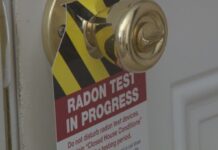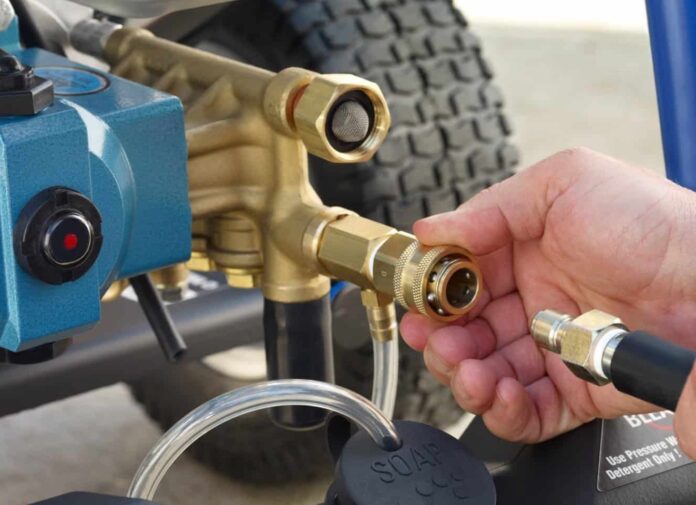
One of the most convenient outdoor cleaning tools you can invest in is a pressure washer. It can make most of your tasks, including deep cleaning your property, a lot easier and quicker. Your washer can get rid of dirt buildup around your home and keep your vehicles clean with ease.
Pressure washers are durable and will serve you for many years. Nevertheless, like with all machines, your unit will likely break down over time because of regular use. Fortunately, some of the issues you’ll encounter are minor, and you can fix them yourself at home.
With that in mind, here is a list of common issues your pressure washer may encounter and how you can take care of them.
Engine Problems
One of the most common problems with pressure washers is issues with their engine. The usual culprit for this is a filthy air filter. This can prevent air from reaching your unit’s carburetor. As a result, your power washer will not perform as effectively. For this reason, it is advisable to check its whole air filtration system occasionally.
If you’re having trouble starting the motor of your electric pressure washer, this troubleshooting procedure can help you get it going.
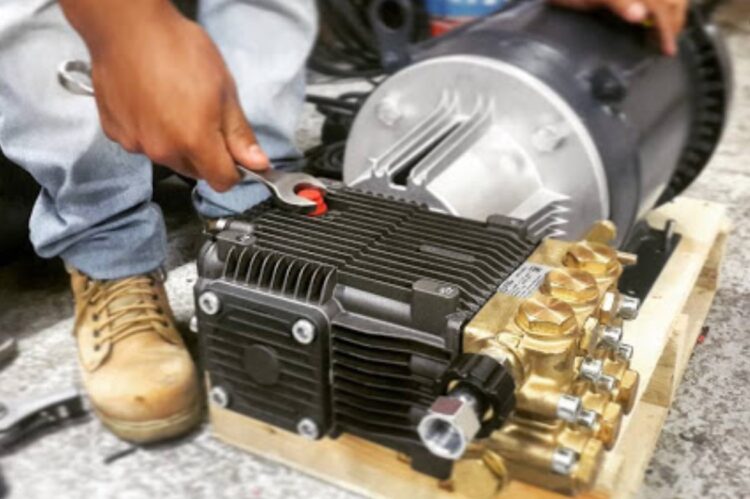
Pressure Problems
I’m experiencing low pressure
When your pressure washer is not producing enough pressure, it usually means that it has an inadequate water inlet. Another reason could be because you’re using an incorrect nozzle size. Fix this by using the right nozzle.
Furthermore, your hose may be blocked or kinked. So make sure to check and unkink your garden hose to ensure the water flow is at its maximum.
My washer has no pressure at all
The experts from Smart Pressure Washer tell us if your unit is not letting out any pressure, the first thing you want to check is if its unloader and pump inlet valves are broken. If there’s a clog on any of these components, clean them first. But if cleaning does not solve the problem, you may want to get new valves.
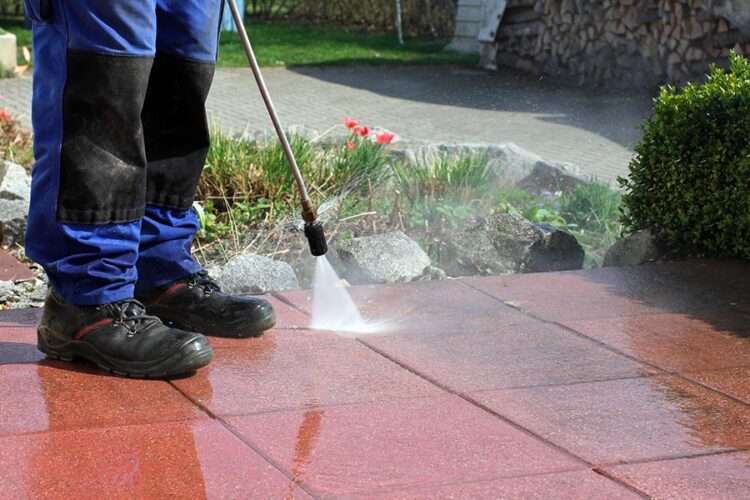
The pressure is pulsating
If the water pressure is fluctuating, your machine’s pump is likely damaged or may have sucked up a lot of air as well. To resolve this, turn off your machine, then squeeze its trigger to dissipate the air. If you want to maintain your pressure washer in good condition, you can read the pressure washer maintenance guide online for you to have an idea.
Spiking pressure
Your unloader valve may be poorly calibrated, that’s why you’re experiencing a spike in pressure. You can easily fix this by adjusting the unloader valve. Make sure to follow the instructions on the manual of your machine on how to normalize its pressure.
The pressure is dropping
The cause of this is typically a blocked nozzle. So just use a sharp needle to unblock your nozzle.
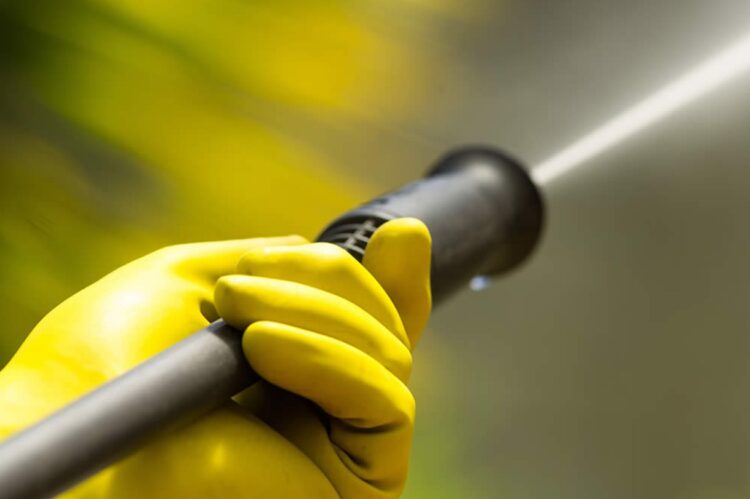
My pressure is not cleaning my surfaces
You may not be using the right nozzle for the job. For maximum pressure, consider switching to a higher pressure nozzle.
Leakage Problems
We often associate pressure washer water leakage as a problem that needs to be taken care of immediately. But it’s actually a good thing at times. The reason behind a leaking pressure washer is its thermal valve that prevents the overheating of your washer’s pump. As the water in your unit becomes trapped, it stops fresh cool water from entering.
Simply pull your machine’s trigger every minute or do. Make sure to turn it off and do not allow it to run if you will not utilize it for a while. Your pump will acquire permanent damage from overheating. The problem is often the air within the pump. Hence, holding the trigger will keep the water running into your pressure washer, which, in turn, will clear the air from its lines and pumps.
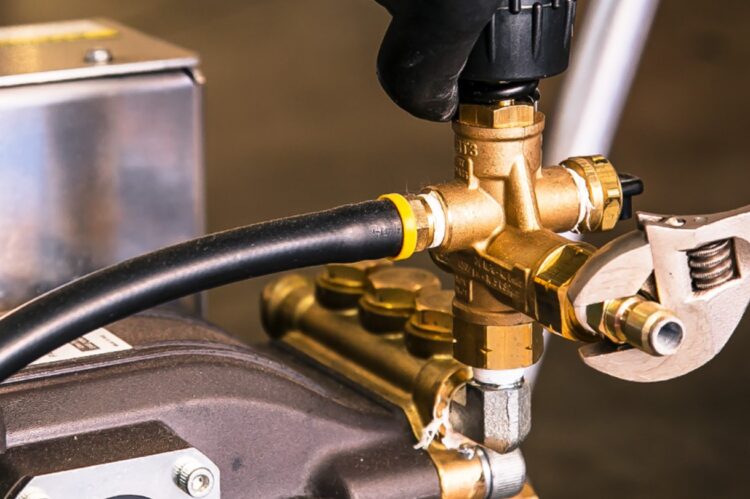
My Power Washer Is Running Rough
When you notice your equipment begins to run rougher than usual, it may be due to its water inlet being too hot. Using cold water usually takes care of this issue. Keep in mind that the sunlight can also warm the water inside your hose even if the water from your faucet is not hot, which may also lead to the problem.
Another possible cause is that there is not enough air going into the inlet plumbing. To generate pressure, make sure that your washer has the appropriate amount of water and air. Furthermore, all the components of your unit should be working properly, including the discharge valves. You also want to check if the air filter needs replacement.
Common Problems Of Electric Pressure Washers
The issue most electric-powered users experience is that their unit won’t ignite. If you’ve checked and ensured that all connections are where they’re supposed to and still the motor won’t start, this may mean that it is faulty and needs replacement.
If the motor stalls during a cleaning session, you may be experiencing a fluctuating or low voltage. When this happens, fix the issue right away to prevent your pressure washer from getting damaged.
Additionally, it’s always a good idea to invest in a top-notch machine. This will save you from costly repairs in the future and provide you with much better cleaning performance. You can check out this list of the best electric pressure washers on the market today.
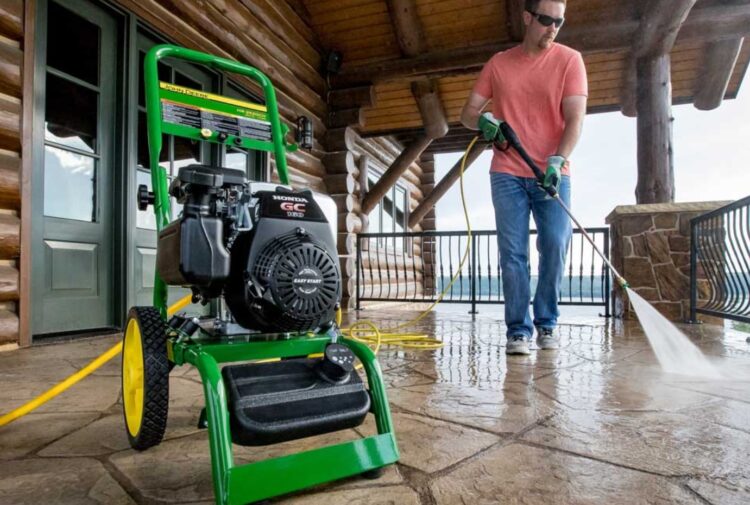
Common Problems Of Gas Pressure Washers
The detergent injector is not working properly
If your gas-powered washer’s detergent injector is faulty, there’s likely a clog in its soap inlet filter or soap inlet valve. You can unclog the soap inlet filter by removing and flushing it with water. On the other hand, you can unclog the soap inlet valve by using a pointed needle to unstick its ball valve. Additionally, you may be using a detergent that’s a bit thick to pass into the washer’s detergent injector pump.
Your power washer is louder than usual
A too-loud gas pressure washer may be caused by the lack of oil in its pump or engine. So make sure to check the oil and add some if necessary. Furthermore, the excess noise may be due to a blockage in the water intake. If that’s the case, clear it, and check if it needs replacement as well.
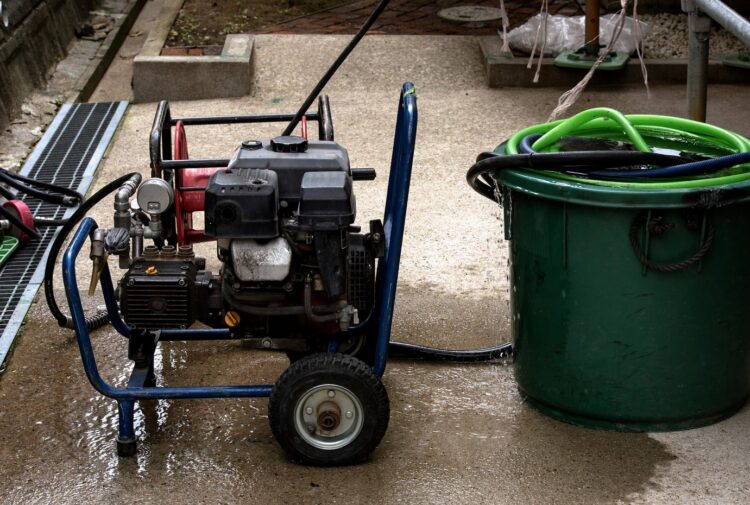
Oil is leaking
Oil leakage is very common because of broken seals or loose bolts. You can fix this by tightening any loose bolts or fittings. And if there are any damaged seals, avoid opening it and claim your warranty instead.
Sudden shutdown
If your gas washer shuts down abruptly, it either runs out of fuel or oil. One of the things you should never skip before starting a task is to check both the fuel and oil levels of your device. This also applies even if you’ve just refilled them. Doing so will help you determine if there are any leaks or flaws in its manufacturing, which may have progressed over time.


